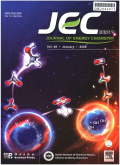- 钛学术文献服务平台 \
- 学术期刊 \
- 工业技术期刊 \
- 石油与天然气工业期刊 \
- 能源化学期刊 \
Inorganic matter in rice husk derived carbon and its effect on the capacitive performance
Inorganic matter in rice husk derived carbon and its effect on the capacitive performance
基本信息来源于合作网站,原文需代理用户跳转至来源网站获取
摘要:
Porous carbons were obtained from rice husk using two different chemical activation methods and they were investigated as supercapacitors.Their properties were studied using X-ray photoelectron spectroscopy,thermal analysis,potentiometric titration,and nitrogen adsorption isotherm.The specific capacitance measured in both H2SO4 and KOH electrolytes in two-electrode cell was up to ~150 F/g.The activation method used affected the resulting carbons' features.As expected,the dependence of the capacitance on porosity was found.The ash content reached 36 wt.% and that inorganic mater blocked some pores and limited their accessibility to electrolyte ions and increased the charge transfer resistance.Nevertheless,the main ash constituents such as CaCO3,MgCO3,Ca3(PO4)2 (or P2O5),and Fe-and Zn-containing species did not affect the specific capacitance to a large extent.Especially SiO2,even in a relatively large amount (~20 wt.%),did not play a detrimental role in the capacitance behavior.The results showed that in spite of a high ash content,carbon can exhibit a good capacitive performance provided that it has a favorable porosity and is rich in sp2 configurations.

推荐文章
Influence of the biological carbon pump effect on the sources and deposition of organic matter in Fu
Carbonate weathering
Hydrochemical variation
Biological carbon pump effect
Sediment trap
Autochthonous organic carbon
Carbon sink
Sources of dissolved inorganic carbon in rivers from the Changbaishan area, an active volcanic zone
Carbon isotopes
Dissolved inorganic carbon
Rivers
Chemical weathering
Changbaishan
Active volcanic zone
Methane production from rice straw carbon in five different methanogenic rice soils: rates, quantiti
13C-labeled rice straw
Methane production
Rice field soil
Microbial community
Effect on greenhouse gas balance of converting rice paddies to vegetable production
Greenhouse gas balance
Land management change
CH4
N2O
Soil organic carbon
内容分析
关键词云
关键词热度
相关文献总数
(/次)
(/年)
引文网络
引文网络
二级参考文献 (0)
共引文献 (0)
参考文献 (1)
节点文献
引证文献 (0)
同被引文献 (0)
二级引证文献 (0)
2012(1)
- 参考文献(1)
- 二级参考文献(0)
2021(0)
- 参考文献(0)
- 二级参考文献(0)
- 引证文献(0)
- 二级引证文献(0)
引文网络交叉学科
相关学者/机构
期刊影响力
能源化学
主办单位:
中国科学院大连化学物理研究所
中国科学院成都有机化学研究所
出版周期:
双月刊
ISSN:
2095-4956
CN:
10-1287/O6
开本:
出版地:
大连市中山路457号
邮发代号:
创刊时间:
语种:
eng
出版文献量(篇)
2804
总下载数(次)
0
期刊文献
相关文献
推荐文献
- 期刊分类
- 期刊(年)
- 期刊(期)
- 期刊推荐
一般工业技术
交通运输
军事科技
冶金工业
动力工程
化学工业
原子能技术
大学学报
建筑科学
无线电电子学与电信技术
机械与仪表工业
水利工程
环境科学与安全科学
电工技术
石油与天然气工业
矿业工程
自动化技术与计算机技术
航空航天
轻工业与手工业
金属学与金属工艺
能源化学2022
能源化学2021
能源化学2020
能源化学2019
能源化学2018
能源化学2017
能源化学2016
能源化学2015
能源化学2014
能源化学2013
能源化学2012
能源化学2011
能源化学2010
能源化学2009
能源化学2008
能源化学2007
能源化学2006
能源化学2005
能源化学2004
能源化学2003
能源化学2002
能源化学2001
能源化学2021年第9期
能源化学2021年第8期
能源化学2021年第7期
能源化学2021年第6期
能源化学2021年第5期
能源化学2021年第4期
能源化学2021年第3期
能源化学2021年第2期
能源化学2021年第12期
能源化学2021年第1期

 免费查重
免费查重










